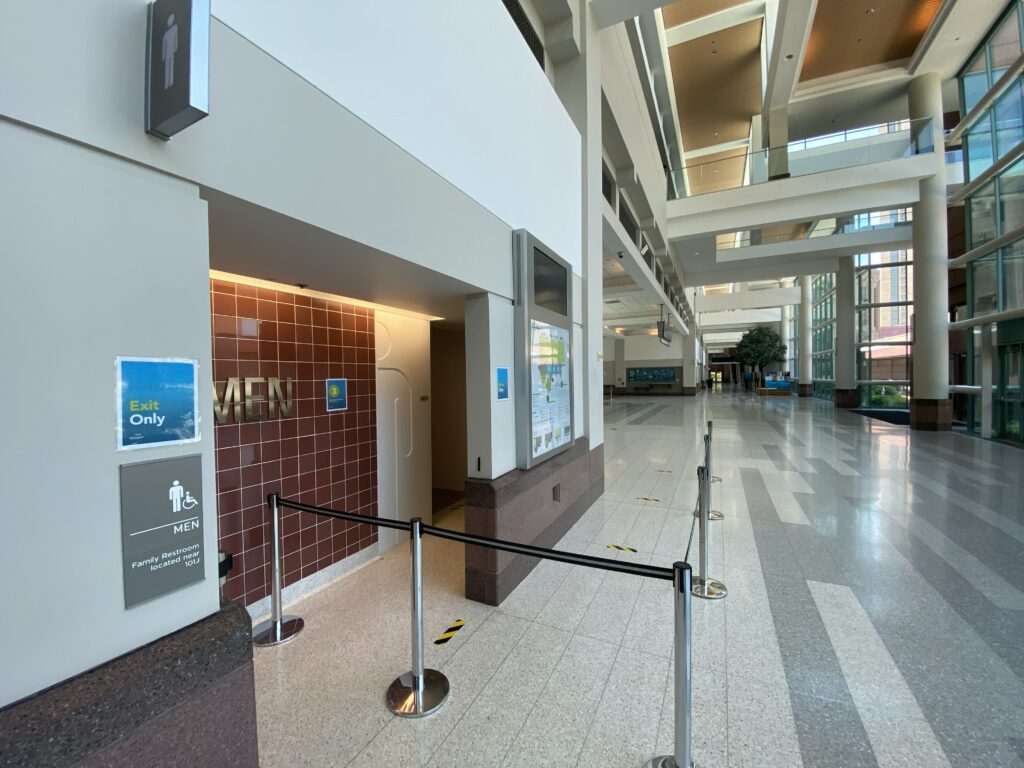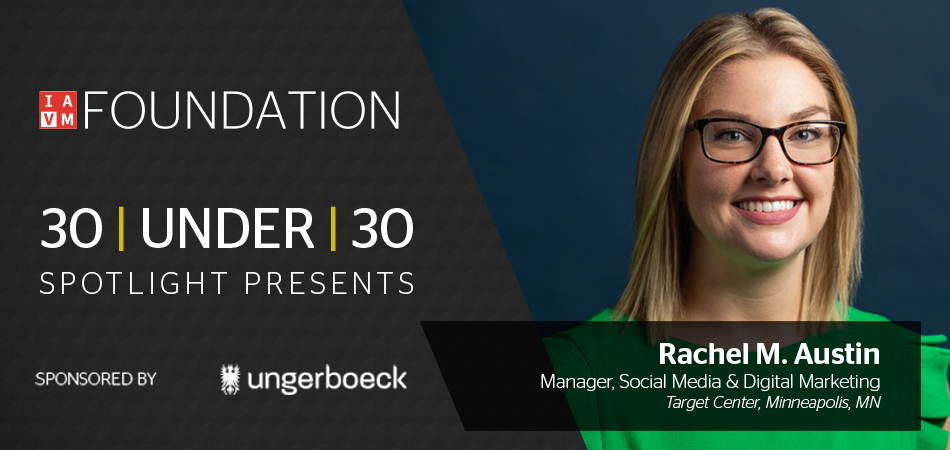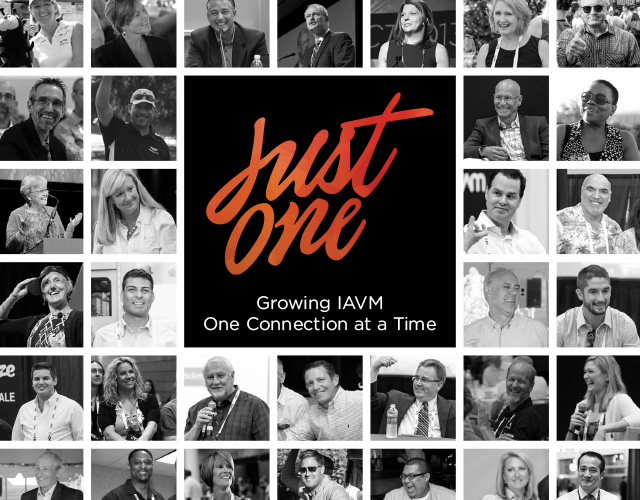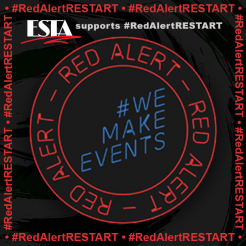TaxSlayer Center Qualifies for COVID-19 Remediation Funding
The Illinois Quad City Civic Center Authority dba The TaxSlayer Center has qualified for eligibility to receive up to $484,622 through the Local Coronavirus Urgent Remediation Emergency (CURE) Support Program. The local CURE program is funded from financial assistance the State of Illinois received through the U.S. Department of the Treasury’s Coronavirus Relief Fund.
Up to this point the TaxSlayer Center along with numerous other authorities/venues throughout the country had  been excluded from any COVID-19 related government assistance because they are independently owned by a quasi-governmental entity. Many lawmakers mistakenly assume these types of buildings are owned by a City or a State and included in local or state budgets within those entities but that is not the case.
been excluded from any COVID-19 related government assistance because they are independently owned by a quasi-governmental entity. Many lawmakers mistakenly assume these types of buildings are owned by a City or a State and included in local or state budgets within those entities but that is not the case.
“We have been working diligently along with IAVM and local officials to gain the support of our congressional representatives to be included in relief bills”, said Scott Mullen, CVE, TaxSlayer Center Executive Director. “We happened to come across the local CURE program thanks to a tip from one of our Board Members who noticed Navy Pier and some Chicago museums were qualifying for relief and we got our application in to the IL Department of Commerce and Economic Opportunity immediately just one day before the application window closed.
“You have to actively search for any and all available funding options because they move fast and nobody is going to go out of their way to call you up and hand you this money.”
The TaxSlayer Center will be using these reimbursement funds to underwrite some of the COVID-19 related projects they are undertaking in the coming months during the shutdown. The venue is spending approximately $1.4 Million on projects that will make it a safer place for customers once it re-opens. Among the upgrades will be a retrofit to automatic flush valves and faucets in all public restrooms, bacteria killing UV lights will be installed to disinfect escalator handrails, WIFI upgrades to support mobile concession ordering platforms for contactless payment, installation of hand sanitizing dispensers throughout the facility, the purchase of electrostatic sprayers to disinfect seats and armrests, along with new PPE inventory and several other COVID-19 remediation measures.
The deadline for project completing and submittal for reimbursement is December 30, 2020. “Our goal is to have all projects completed by mid November”, Mullen said. “When the time comes to re-open for events, we want to make sure that our guests and employees have the safest possible environment and feel comfortable coming back to the building.”
Re-Opening Preparedness in the Convention Center World
(Editor’s Note: The following is a Q&A with Jeff Johnson, Executive Director of the Minneapolis Convention Center [MCC]. Like other convention centers around the country, his addresses the issues of opening back up to new standards as a result of COVID-19.)
By Kathy McCarthy
What new policies and procedures has the MCC implemented to reassure visitors of a safe and healthy experience MCC Plaza Redesign in the COVID era?
The MCC has always been known for its professional staff that provide great service and implements industry  leading policies and procedures. Our cleaning practices have been a hallmark of our success and something that clients and attendees historically rate as a competitive advantage for the MCC. We are taking our cleaning to a higher level and have implemented more sanitation components to our cleaning. Our information can be found on our website for specifics.
leading policies and procedures. Our cleaning practices have been a hallmark of our success and something that clients and attendees historically rate as a competitive advantage for the MCC. We are taking our cleaning to a higher level and have implemented more sanitation components to our cleaning. Our information can be found on our website for specifics.
We also created our operational plan to comply with the Stay Safe MN Plan. The details can be found here. Our staff has redrawn room sets based on physical distancing guidelines for all of our spaces, and we have redesigned how attendees interact with our building through signage and crowd management resources. As part of our plan, each client must work with MCC staff to create an approved COVID-19 plan. This plan will be implemented in conjunction with our overall plan and gives us the flexibility to serve each event’s individual needs. Health screenings, the mask mandate, and controlled entrances are the headlines, but many other plans address how we will work to keep everyone safe.
During this unplanned slowdown, you’ve completed some major projects that will make a big splash once the MCC reopens. Can you tell us about them?
Our most stunning project to the outside world is our renovation of the MCC Plaza which sits just across the street from our facility. This new outdoor space will be more welcoming, more event ready and more sustainably appropriate for our campus. New lighting will help keep the space bright and inviting. Seating will be placed closer to our main entrance and consist of more movable, social pieces that help our guests continue their networking and relationship building outside of our walls. It will also serve as a better event space with increased electrical distribution and improved flat space for catering, production and socialization. The space will also be more sustainable with a new pollinator meadow with wildflowers, and all of our new plantings will be irrigated from rain water collected from our roof.
Our most visible inside project is the new terrazzo floor that now spans the entire first level. The new floor has a more modern design that complements the many updates that have been made to our facility and it will be more durable. Within the terrazzo are inlayed images of activities that residents of Minneapolis enjoy in our great city. Sailing, fishing, snow shoeing, cross country skiing, plus other activities give our floor some Minneapolis personality while also acting as wayfinding markers for our large venue.
Over the last several years, the convention center has made a huge commitment to reducing our energy usage, and 100% of our electricity usage is offset by renewable resources either through our larger solar array or through a wind energy program with Xcel Energy. The MCC has also reduced its electrical consumption by 15% through conservation techniques like installing LED lighting. This year we were able replace all lighting in our 87 meeting rooms with LED lights. This saves energy and will provide more consistent, dimmable lighting in the space at a more appealing color temperature.
What are some of the trends in meeting preparedness that you have discussed with some of your peers in convention center world?
Obviously, one trend that all meetings and convention centers are dealing with is safety. Not only is this safety from the pandemic, but it is also travel safety during a time of civil unrest across the country. Meet Minneapolis and the convention center have been very proactive in discussing these issues with our clients and providing answers to their public safety questions on the Meet Minneapolis website.
Technology is rushing into our marketplace, and it is difficult to know what technology is a good investment and which is not a long-lasting solution. Security and screening technology along with cleaning technology are the most talked about areas, but other technologies that help with virtual registration, timed ticketing and queuing may be just as important. How we use our building – especially our public lobbies – will be a challenge going forward that may need technology to solve it.
The single most talked about trend is the challenge for all convention centers with a complete collapse of our funding models. Most convention centers are funded through a combination of operating revenues and hospitality-based use taxes. As events cancel, operating revenue dissolves. As travel and activity evaporates, the taxing mechanism fails to provide the needed funds to pay for the infrastructure a large facility like a convention center needs. The MCC has been in a really strong financial position for decades which has helped us weather the storm in 2020. Most convention centers do not have the same situation. If this double whammy of revenue shortfalls persists through 2021, even the strongest convention centers will face serious financial challenges especially related to debt payments. Many in our industry are worried and looking to state and federal agencies for help.
You have often referred to the MCC as a relationship building. What ways can the MCC be a catalyst for bringing our community and nation back together for meetings and events?
There is no better time for human beings to take the time to listen and learn about each other’s lives and challenges. The pandemic has forced us into solitude while confining us to our small familial/friend groups that tend to be homogenous. It is only when we step outside what is comfortable, to learn about others, that our minds and actions can grow and change. There are some really tough challenges and discussions ahead. These discussions don’t work well over a video call. The true emotion and feeling that you get from the presence of another human being brings understanding of their situation and allows you to show your own humanity. I believe that human beings need to be together for art, sports, music, entertainment, work, learning, and growth. Once it is safe again, I hope the MCC can be a gathering place for understanding as we strive to help foster change in our country. Relationships that we build with our guests and clients as service professionals will bring confidence to those that are ready to return to in-person meetings. It is critical that our building helps build those broader relationships in our country and community.
What does the future hold for the MCC in the next 8-12 month?
I wish that I knew the answer. So much changes each day, and we seem to be fighting a battle with the unknown. We continue to plan for hosting large events. Realistically, it will be a slow return towards something closer to normal. Many of our events have moved to a future date so the near term is not positive, but next year could see decent event activity. The economy and the confidence of attendees to return to in-person meetings will really depend on so many factors, leading with a viable vaccine. Fortunately, we still have great demand for the future and groups wanting to continue to host their events at the Minneapolis Convention Center. The road to that future may take a while, but I feel strongly that Minneapolis is a great hospitality city that will only become a better destination for meetings.
Kathy McCarthy is Director of Public Relations and Communications Meet Minneapolis, Convention & Visitors Association.
30|UNDER|30 Spotlight: Rachel M. Austin

Rachel M. Austin
Social Media & Digital Marketing Manager at Target Center
Rachel Austin is the Social Media & Digital Marketing Manager at Target Center in Minneapolis, MN. Rachel’s favorite part of this business is telling a venue’s story and building their brand voice, as well as connecting with guests on social media and hearing their favorite event memories.
When asked what being named to the 30|UNDER|30 Class of 2020 meant to her, she replied, “When I found out I had been chosen to be part of this year’s IAVM 30|UNDER|30 class, I was shocked and honored. While this year has been challenging on multiple levels for everyone in our industry, receiving this award motivates me to work even harder to support, promote and execute the highest quality live events for our guests once our world starts to open back up again.”
Join your Foundation in congratulating Rachel on being honored as one of the 30|UNDER|30 Class of 2020! Don’t forget to check back with us each Thursday as we spotlight another honoree!
JustOne Campaign

JustOne Campaign: The annual recruitment campaign gives IAVM’s volunteer leaders the opportunity to recruit one new member as the official launch begins today, September 1 through December 31, 2020. Who makes up the IAVM Leadership? The IAVM Board of Directors, Foundation Board of Trustees, Regents, Governors, Committees and Task Forces spread the word about the value of IAVM membership.
IAVM’s members believe in the networking, engagement, professional development, research and information, and mentoring resources that the Association provides. These are solid reasons to tell our story to potential new members. Let’s expand the IAVM family which now stands at 7,200+ members globally.
Last year’s JustOne campaign ended on December 31, 2019 and resulted in 95 new members. Your leadership and commitment to IAVM’s growth is evident in the results!
GOAL: Today, we have 298 individuals involved in IAVM’s governance. If everyone just one new member it will give us 100% participation by our leadership in 2020-2021, potentially adding another 298 new members.
Why is this important? IAVM’s governance is working hard to identify the next round of leaders that will propel IAVM into the future and new heights, but more importantly, provide you with expanded connections to give you more vibrant experiences and discussions at our schools and conferences, face-to-face and virtually. By having a larger more diverse network, everyone benefits.
REWARD: The Board, Committee, Council or Task force and individual that refers the most members will be recognized at VenueConnect 2021 in Atlanta, Georgia.
To receive credit for your new member, ask your referral to complete these fields in the online membership application*:
- How did you hear about IAVM – Enter “JustOne” and the committee you want to receive credit; important if you serve on multiple committees
- Example: JustOne-Membership Committee
- Example: JustOne-Membership Committee
- If a person referred you, provide name:
- Example: Stacey Church, Membership Committee
*The applicant will save the one-time initiation fee of $150 if they enter ‘JustOne’ in the promotion code field of the Professional or Allied Membership Applications. New members only
JustOne affords you the opportunity to help someone reach their potential and have access to resources that ensures their success. Encourage your colleague, star employee, customer, etc. to become a part of our community. Encourage them to become an IAVM member. So, get your competitive juices flowing and help us meet our goal, 298 volunteers connecting 298 new members with IAVM.
Questions, contact Member Services at 972.906.7441 and ask for Gina Brydson and Robin Covington.
Join the Live Event Industry Thursday, September 1st at 9 pm to Light 1,500 Buildings in Red Across the Country
By ESTA
ESTA is proud to help raise awareness of the dire need for Congress to both pass the RESTART Act (S.3814), which would extend the Paycheck Protection Program and establish SBA loan guarantees for certain businesses, and extend the Pandemic Unemployment Act. These measures will help our industry, which is on Red Alert for its very survival. That is why we need your help to spread the word about #RedAlertRESTART.
To call attention to the deep financial plight of the Live Event Industry, a nationwide event will take place on  Tuesday, September 1st, 2020, from 9 pm-midnight. As of now, around 1,500 buildings across North America will be lit in red as a show of support for the Live Events Industry. We hope this message will help that number grow. The goal is create congressional pressure to act now. Once a robust $35 billion industry, the Live Events business was the first to close and will be the last to re-open, forever changing the lives of those involved.
Tuesday, September 1st, 2020, from 9 pm-midnight. As of now, around 1,500 buildings across North America will be lit in red as a show of support for the Live Events Industry. We hope this message will help that number grow. The goal is create congressional pressure to act now. Once a robust $35 billion industry, the Live Events business was the first to close and will be the last to re-open, forever changing the lives of those involved.
#WeMakeEvents, #RedAlertRESTART and #ExtendPUA represent a major call to action, imploring the US Congress to pass the RESTART Act (S.3814) as quickly as possible, offering economic relief to the Live Events Industry which has been shuttered since March, 2020. Additionally, the movement is to support ExtendPUA.org in their efforts towards continuation and extension of the Pandemic Unemployment Act.
The North American event was inspired by the August 11th event #WeMakeEvents Red Alert Day Of Action, when over 700 buildings were lit in red across the UK. That event, organized by PLASA (https://www.plasa.org/we-make-events/), called attention to the same plight facing the Live Events Industry there.
As wedding halls, theaters, concert tours, festivals, opera houses, trade shows remain closed (or open on a very limited basis) and live events as well as film and television production continue to be canceled, the entire industry is impacted, from designers, technicians, programmers, and stagehands to rental shops, manufacturers, and distributors of entertainment technology.
Please share this message far and wide and join by lighting your house red and posting on social media. Attached is a graphic you may also use on your website or social media channels. This is our opportunity to show the world the scale of what it really takes to make events possible.
For information about joining the event and lighting your building red, please contact: WeMakeEventsNorthAmerica@gmail.com.
Do you want to receive a Front Row News weekly digest?
Categories
- Allied (861)
- Architecture (147)
- Arenas (747)
- Career (897)
- Convention Centers (895)
- Education (623)
- Events (1,544)
- Food & Beverage (193)
- Foundation (113)
- Guest Experience (1,496)
- Industry News (2,270)
- Leadership (1,888)
- Marketing (150)
- Membership (2,000)
- Music (213)
- Performing Arts Centers (454)
- Professional Development (409)
- Research (127)
- Safety & Security (442)
- Sports (763)
- Stadiums (608)
- Student (159)
- Technology (516)
- Ticketing (92)
- Touring (82)
- Trends (364)
- Uncategorized (741)
- Universities (218)
- Video (25)
- Young Professional (198)
Twitter Feed
- Twitter feed loading
Recent Posts
- Peggy Daidakis Humbly Made Convention Center History
- Welcome to Our Newest Members
- New Member Benefit! IAVM Partners with Advantage Training to Elevate Staff Readiness and Guest Experience
- Charlotte Convention Center Welcomes Two New Leaders to its Management Team
- Fort Worth Cuts Ribbon on Phase 1 of Convention Center Expansion
Categories
- Allied
- Architecture
- Arenas
- Career
- Convention Centers
- Education
- Events
- Food & Beverage
- Foundation
- Guest Experience
- Industry News
- Leadership
- Marketing
- Membership
- Music
- Performing Arts Centers
- Professional Development
- Research
- Safety & Security
- Sports
- Stadiums
- Student
- Technology
- Ticketing
- Touring
- Trends
- Uncategorized
- Universities
- Video
- Young Professional
Archives
- December 2025
- November 2025
- October 2025
- September 2025
- August 2025
- July 2025
- June 2025
- May 2025
- April 2025
- March 2025
- February 2025
- January 2025
- December 2024
- November 2024
- October 2024
- September 2024
- August 2024
- July 2024
- June 2024
- May 2024
- April 2024
- March 2024
- February 2024
- January 2024
- December 2023
- November 2023
- October 2023
- September 2023
- August 2023
- July 2023
- June 2023
- May 2023
- April 2023
- March 2023
- February 2023
- January 2023
- December 2022
- November 2022
- October 2022
- September 2022
- August 2022
- July 2022
- June 2022
- May 2022
- April 2022
- March 2022
- February 2022
- January 2022
- December 2021
- November 2021
- October 2021
- September 2021
- August 2021
- July 2021
- June 2021
- May 2021
- April 2021
- March 2021
- February 2021
- January 2021
- December 2020
- November 2020
- October 2020
- September 2020
- August 2020
- July 2020
- June 2020
- May 2020
- April 2020
- March 2020
- February 2020
- January 2020
- December 2019
- November 2019
- October 2019
- September 2019
- August 2019
- July 2019
- June 2019
- May 2019
- April 2019
- March 2019
- February 2019
- January 2019
- December 2018
- November 2018
- October 2018
- September 2018
- August 2018
- July 2018
- June 2018
- May 2018
- April 2018
- March 2018
- February 2018
- January 2018
- December 2017
- November 2017
- October 2017
- September 2017
- August 2017
- July 2017
- June 2017
- May 2017
- April 2017
- March 2017
- February 2017
- January 2017
- December 2016
- November 2016
- October 2016
- September 2016
- August 2016
- July 2016
- June 2016
- May 2016
- April 2016
- March 2016
- February 2016
- January 2016
- December 2015
- November 2015
- October 2015
- September 2015
- August 2015
- July 2015
- June 2015
- May 2015
- April 2015
- March 2015
- February 2015
- January 2015
- December 2014
- November 2014
- October 2014
- September 2014
- August 2014
- July 2014
- June 2014
- May 2014
- April 2014
- March 2014
- February 2014
- January 2014
- December 2013
- November 2013
- October 2013
- September 2013
- August 2013
- July 2013
- June 2013
- May 2013
- April 2013
- March 2013
- February 2013
- January 2013
- May 2012
- March 2012
- December 2011
- November 2011
- October 2011
Recent Comments
- Frank Bradshaw, Ph.D., CVE on John Meyer, CVE, a Tireless Advocate of Certification for Venue Professionals, Has Died
- Neil Sulkes on Hilary Hartung, Friend to Many in Venue Marketing, Has Left Us
- Jason Parker, CVE on The Devastation of Hurricane Helene and How We Can Support One Another
- Larry Perkins on Touhey Testifies Against Speculative Ticketing Before Congressional Subcommittee
- Peter Secord on Major Players for Planned Elkhart Amphitheater Were in the Mix at VenueConnect
